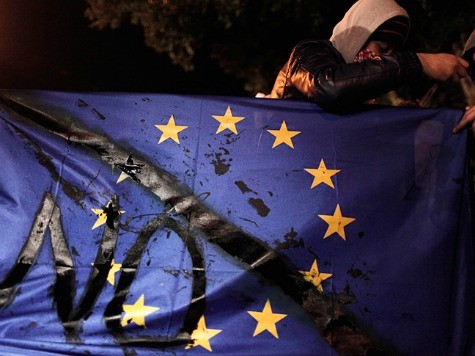In a little-publicised move, the European Commission is trying to seize control over the accreditation of higher education institutions across the EU by bringing a legal test-case against Slovenia.
The action, if successful, will establish that national authorities in member states are no longer able to refuse to recognise degrees and diplomas issued by foreign-owned institutions.
The commission is claiming the power under the 2006 EU Services Directive, which lays down the “freedom to provide services.” The directive bars member states from imposing their national requirements on a wide range of cross-border trade and services, including retail sales, tourism, construction, and business related services.
Opponents of the commission’s move insist the services directive explicitly excludes education from being considered a market service. They say moves by the commission to take control of accreditation threaten to damage the quality of education.
The infringement case was opened in 2011, when authorities in Ljubljana were informed by the eurocrats in charge of the internal market that Slovenia’s Higher Education Act (HEA) was not in line with the services directive and a number of treaty articles pertaining to market freedoms, as well as a number of European Court of Justice (ECJ) rulings, according to Euractiv.
The move had been triggered after a British education provider granted a franchise to a private education institution in Slovenia, prompting the authorities to refuse to recognise the diplomas.
After pressure from Brussels, the government amended the law, but the eurocrats said the amendment had not been enough. They have now taken action which could bring Slovenia to the ECJ.
However, Klemen Miklavic, a researcher on education policy at the University of Ljubljana told Euractiv: “The Commission persistently avoids the provisions of the ‘Services Directive’ that explicitly exclude education as a service of general interest and special meaning from the scope of the directive.”
He wondered why the commission suddenly treats education as a service on the market. He added that “the treaties are clear: the content of teaching and the organisation of education systems belong strictly to the jurisdiction of member states.”
According to Slovenian law, transnational institutions need to go through an accreditation and registration process. The commission sees this as being “incompatible with freedom of establishment and freedom to provide services,” according to a leak of a reasoned opinion obtained by EurActiv.
Jaka Perovšek, a spokesman for Iskra, the Slovenian student movement, said students opposed the move by Brussels, and blamed the former government’s “obedience” to the EU. He said the government didn’t “see itself in a position to decline anything from the EU institutions and they are not capable of understanding neither the implication of such deregulation, nor the legal tricks the Commission is using to apply pressure.”
Miklavic agreed: “The reaction can be interpreted as typical for a small peripheral new member state, perceiving itself as powerless in front of the EU institutions.”

COMMENTS
Please let us know if you're having issues with commenting.